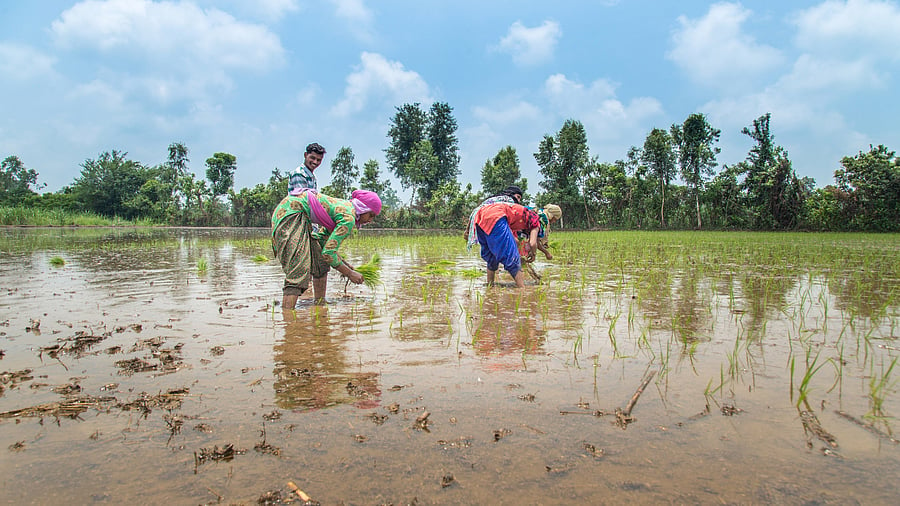
Kalaburagi: Hundreds of labourers doing construction and daily-wage jobs in Bengaluru, Mumbai and Pune have gone back to their villages in the Kalyana Karnataka region, a reverse migration of sorts that has been triggered by the early onset of the monsoon.
Farmers said they returned early to take up sowing operations and hoped for a better crop season. Last year’s erratic rainfall—marked by dry spells and sudden downpours—had severely affected yields. Many of these returning migrants own small plots of 3–4 acres and depend entirely on rainfall for cultivation.
Hanumant Vaddar is one such farmer. Hailing from Ichanal village in Raichur, Vaddar said his family had been working in construction near Yelahanka in Bengaluru. But no more.
“With the monsoon arriving in late May, we returned to sow tur and onion on our three acres. Last year, I suffered a Rs 20,000 loss due to moisture deficiency,” he said.
Jaising Chavan, a construction supervisor from Benkeppali Thanda in Kalaburagi, was in Mumbai and earning Rs 1,100 a day when he got to know about the news that monsoon had arrived early. “This year, I came back early to sow on seven acres. Last year, rains came only in July,” he said.
Sharanabasappa Mamashetty, district president of Karnataka Prantha Raitha Sangha, said over 600 farmers from his native village of Ratkal in Kalagi taluk had returned.
“Last year, only about 200 farmers could sow due to delayed rainfall. Delays in MGNREGS payments also pushed many to migrate,” he said.
The mass return of workers has impacted construction activity in urban centres. Small and medium developers, who often employ labourers from North Karnataka, have been especially hard-hit.
“Nearly half of our 100 workers are from Kalyana Karnataka. Many have left for sowing, forcing us to halt work at several sites,” said Ramkrishna P, who runs R R Enterprises in Bengaluru.
In Mumbai, builder Ram Rathod said nearly 50% of his 150-member team had returned to Kalaburagi. “They usually leave after June 15. This year, they left in May itself,” he noted.
'Gulbarga colonies'
Labour officer Chandrasekharaiah B G from the Karnataka Building and Other Construction Workers Welfare Board said many migrants live in ‘Gulbarga Colonies’ across Madiwala, Jayanagar, and Bommanahalli.
“Most are from Kalaburagi, Yadgir, and Raichur. A few return to their villages during sowing season,” he said.
As sowing picks up pace across the rain-fed belts of North Karnataka, the shift is both a sign of rural hope and a warning sign for urban developers.
Quote - With the monsoon arriving in late May we returned to sow tur and onion on our three acres. Last year I suffered a Rs 20000 loss due to moisture deficiency - Hanumant Vaddar farmer from Ichanal village Raichur